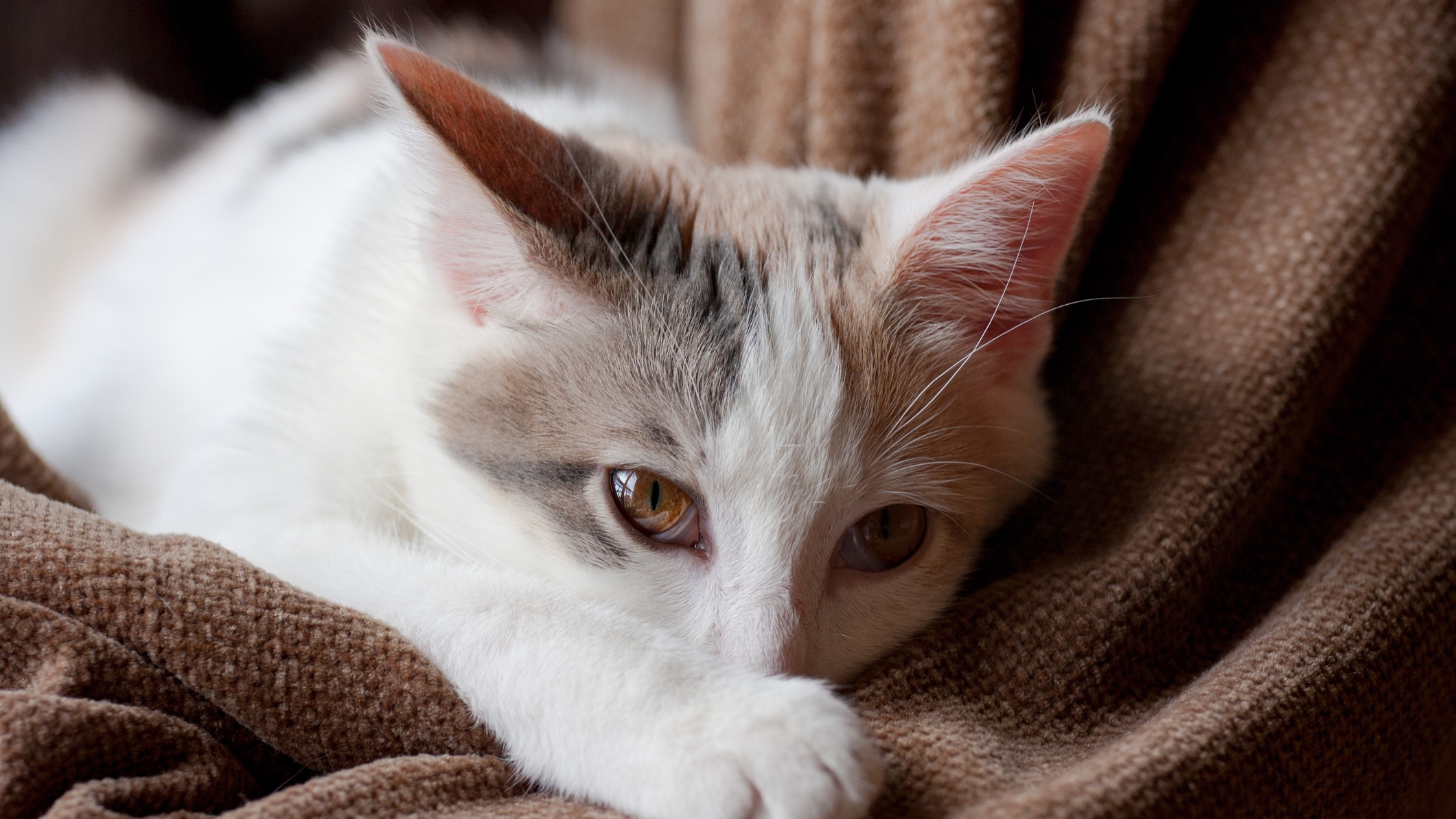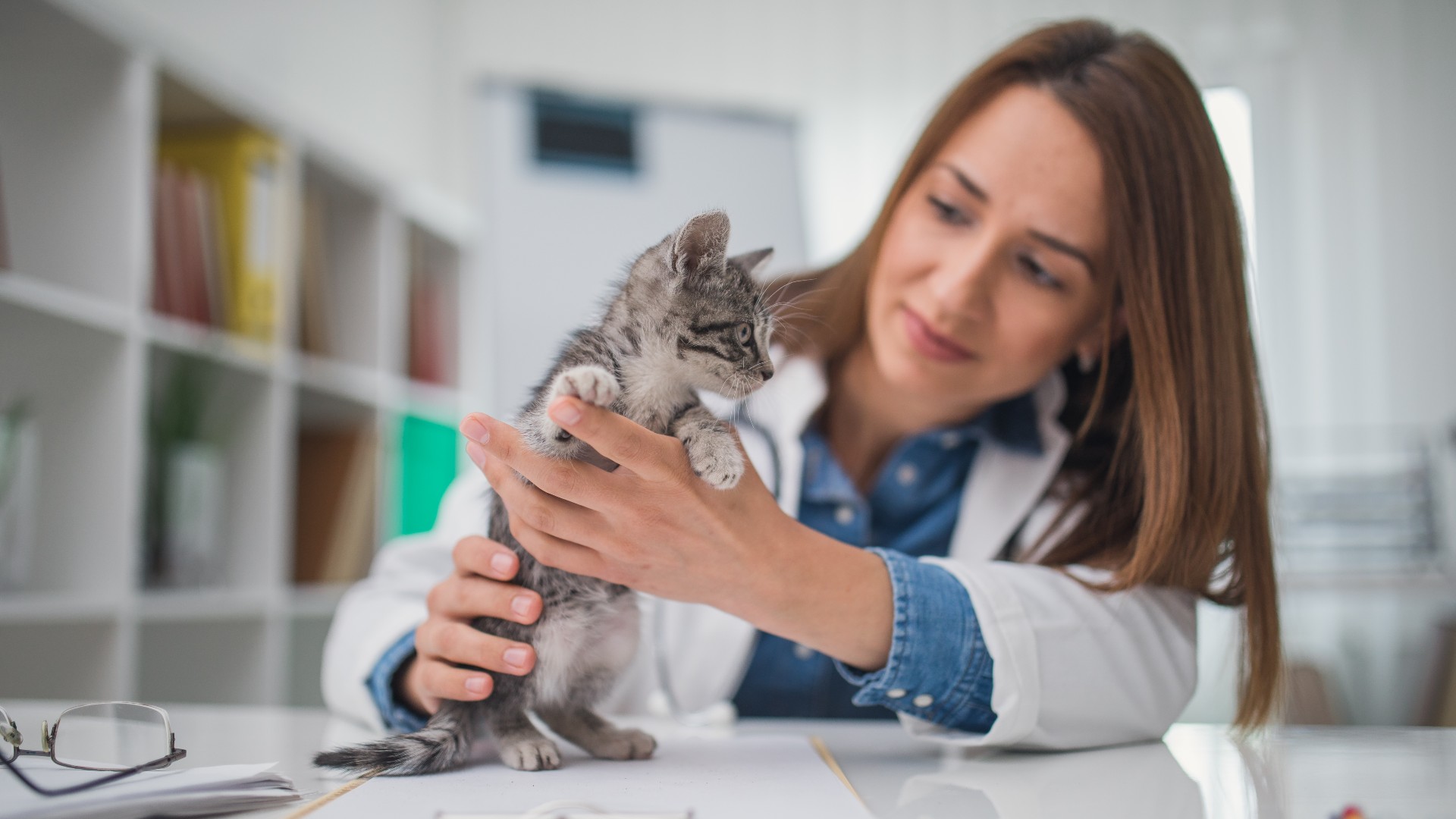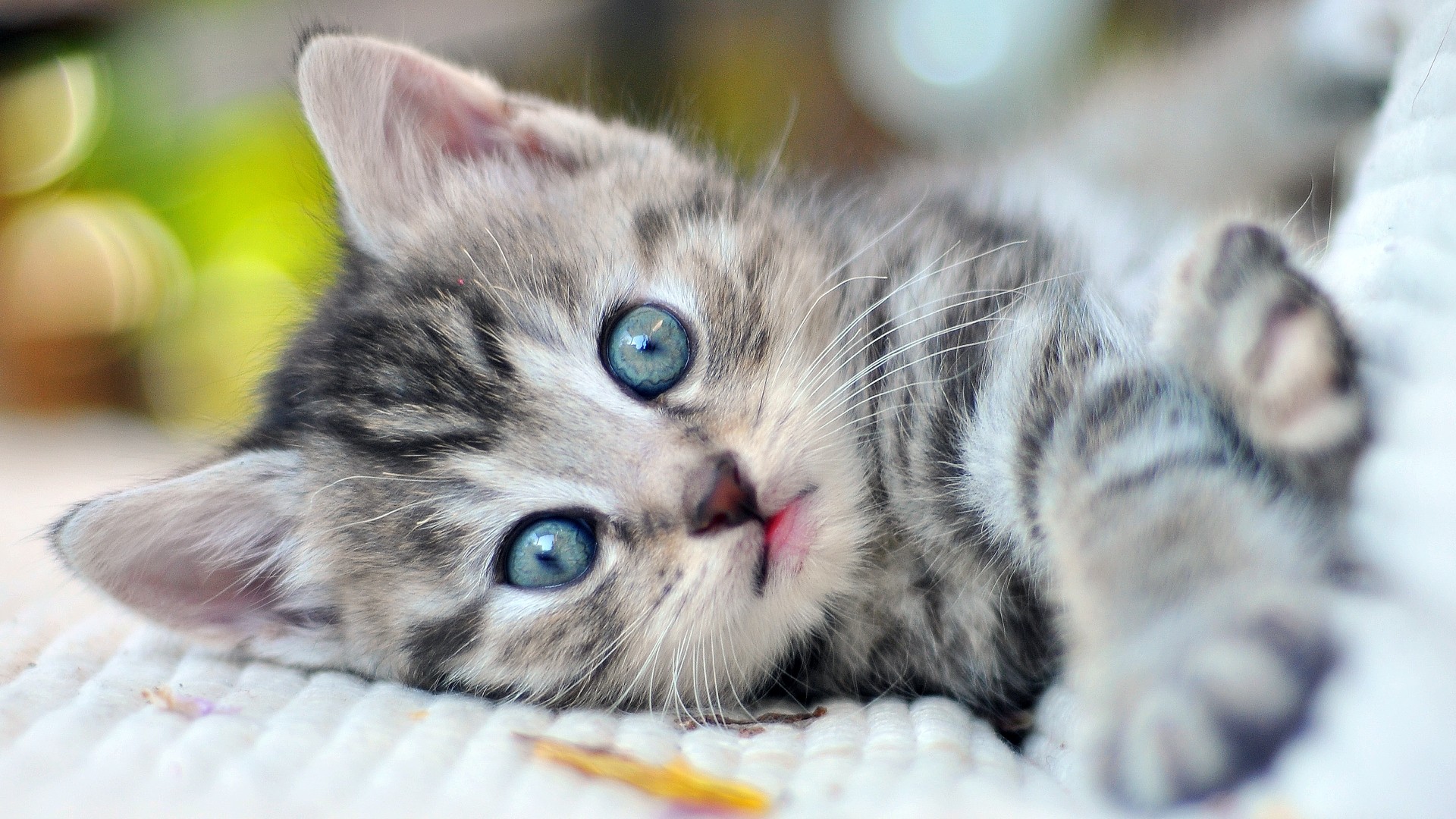What is fading kitten syndrome and should you be concerned?
If your kitten is failing to thrive in the early weeks, check them out for fading kitten syndrome

Get the best advice, tips and top tech for your beloved Pets
You are now subscribed
Your newsletter sign-up was successful
If fading kitten syndrome sounds scary, we understand. Fading is, after all, when something gradually grows faint and disappears. In this instance, it’s when a newborn kitten fails to thrive and, in some cases, dies. It’s a “syndrome” because it’s a collection of clinical signs rather than an actual medical diagnosis.
Fading kitten syndrome happens in the first few weeks of the animal’s life and it has nothing to do with a failure to give the best kitten food nor because you’re not following kitten feeding tips for raising a strong and healthy cat. In fact, it’s not something that you will have caused so don’t blame yourself if your kitten is suffering from this syndrome.
What you can do, however, is spot the signs of fading kitten syndrome and seek urgent help – potentially turning the situation around and helping your kitty to thrive. To assist, expert vet Dr Catherine Barnette takes a look at the causes.
What causes fading kitten syndrome?
Fading kitten syndrome is most common in newborn kittens, during their first week of life but it can occur anytime between birth and weaning. The signs of fading kitten syndrome may be subtle at first, but they gradually become more severe and can lead to death if untreated.
In general, the causes include:
- Maternal factors: As well as dystocia (difficult birth), mastitis (mammary gland infection) and maternal neglect, any significant illness of the mother during pregnancy or nursing can lead to fading kitten syndrome;
- Hereditary factors: These include cleft palates, gastrointestinal abnormalities, heart malformations, and other birth defects;
- Environmental factors: Unsanitary conditions, extreme temperatures (especially low temperatures), and other environmental factors can contribute to stress or disease;
- Infectious diseases: intestinal parasites, bacteria, viruses, protozoa
- Neonatal isoerythrolysis: This is blood type mismatch between a mother and her kittens, destroying the kitten’s red blood cells;
- Low birth weight: The “runt” of a litter is more likely to suffer.
More, however, is becoming known about fading kitten syndrome, as noted in the Journal of Feline Medicine and Surgery. The most common causes are neonatal isoerythrolysis and infections.
What age does fading kitten syndrome start?
Fading kitten syndrome can occur anytime between birth and weaning. “Most kittens are weaned at approximately five weeks of age, so fading kitten syndrome occurs during the first five weeks of life,” says Dr Barnette.
Get the best advice, tips and top tech for your beloved Pets
“Many cases occur during the first week of life but there can be another increase in the risk of fading kitten syndrome at three to four weeks old. Kittens become more susceptible to infectious diseases at three to four weeks old, so fading kitten syndrome during this timeframe is often attributable to infectious disease.”

How do I know if my kitten has fading kitten syndrome?
Signs of fading kitten syndrome may be subtle at first, but they can quickly progress. They include:
- Eating and digestive issues: Watch out for a kitten not eating, diarrhea and vomiting or a weak suckling reflex;
- Tiredness: Lethargy, weakness and decreased movement or coordination, compared to littermates are signs;
- Missed milestones: Failure to meet developmental milestones, compared to littermates;
- Body issues: Look for poor weight gain, a distended or bloated belly or frequent or constant vocalization, as if in pain;
- Sinus problems: Sneezing and discharge from the eyes or nose are signs.
When should I act?
If you suspect fading kitten syndrome, seek vet care as soon as possible. “Kittens can deteriorate quickly,” says Dr Barnette. “Their small size leaves them prone to hypothermia (low body temperature) and hypoglycemia (low blood sugar). Seek care at an emergency veterinary hospital if your regular veterinarian is closed.”

What can I expect at the vets?
Your kitten's first vet visit will involve a thorough physical examination. “The veterinarian may recommend specific tests to look for underlying causes of your kitten’s illness,” says Dr Barnette. “These tests may include blood tests, fecal parasite examination, urinalysis, and bacterial cultures.”

Dr. Barnette is a graduate of the University of Florida, where she received both her B.S. in Zoology and her Doctor of Veterinary Medicine (DVM). She has 15 years of clinical experience as a small animal veterinarian, treating dogs, cats, and occasional exotic patients.
Is fading kitten syndrome contagious?
Fading kitten syndrome may or may not be contagious, depending on its underlying cause.
“Contagious illnesses that may cause fading kitten syndrome include feline herpesvirus-1, feline calicivirus,Toxoplasma gondii, Isospora, Giardia, E. coli, Salmonella, intestinal worms, and others,” says Dr Barnette. “These conditions commonly cause illness beginning at three to four weeks of age.”
If your kitten is suspected of having a contagious illness, you’ll be told how to minimize the risk to your kitten’s littermates and other pets in your home.
Treating fading kitten syndrome
Treatment depends on the kitten’s underlying disease. Infectious diseases may require antibiotics, antiprotozoal medications, or deworming. Birth defects may require surgical correction. A blood transfusion may be needed to treat neonatal isoerythrolysis.
“Your veterinarian will also recommend treatments to support your kitten’s overall health. Your kitten may be hospitalized for intravenous (IV) fluids, oxygen therapy, and/or injectable medications.| says Dr Barnette. “If your kitten is stable enough to be treated on an outpatient basis, you might be instructed to bottle-feed your kitten or feed them via a stomach tube. Your kitten will require a clean environment with careful temperature control and close monitoring.”

Can a kitten survive fading kitten syndrome?
If fading kitten syndrome is recognized and treated early, kittens have a higher likelihood of survival. Even with treatment, however, fading kitten syndrome can be fatal. Your kitten’s prognosis will depend on their underlying illness and whether that condition can be corrected.
Once your kitten has made it through the acute stage of their illness, proactive care will help keep them healthy. Check out our kitten care tips for information on how to care for young kittens.
Dr. Barnette is a graduate of the University of Florida, where she received both her B.S. in Zoology and her Doctor of Veterinary Medicine (DVM). She has 15 years of clinical experience as a small animal veterinarian, treating dogs, cats, and occasional exotic patients. She now works as a freelance veterinary writer, creating educational content for veterinarians, veterinary team members, and dedicated pet owners. Dr. Barnette lives in southwest Florida with her husband and daughter (plus two cats, a dog, and a rescued dove!) and enjoys kayaking, biking, and hiking. Learn more about Dr. Barnette at www.linkedin.com/in/catherinebarnette.

